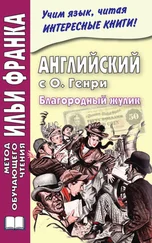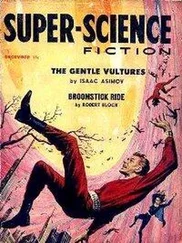R. Morris - The Gentle Axe
Здесь есть возможность читать онлайн «R. Morris - The Gentle Axe» весь текст электронной книги совершенно бесплатно (целиком полную версию без сокращений). В некоторых случаях можно слушать аудио, скачать через торрент в формате fb2 и присутствует краткое содержание. Год выпуска: 2008, ISBN: 2008, Издательство: Penguin Books, Жанр: Исторический детектив, на английском языке. Описание произведения, (предисловие) а так же отзывы посетителей доступны на портале библиотеки ЛибКат.
- Название:The Gentle Axe
- Автор:
- Издательство:Penguin Books
- Жанр:
- Год:2008
- ISBN:9780143113263
- Рейтинг книги:5 / 5. Голосов: 1
-
Избранное:Добавить в избранное
- Отзывы:
-
Ваша оценка:
- 100
- 1
- 2
- 3
- 4
- 5
The Gentle Axe: краткое содержание, описание и аннотация
Предлагаем к чтению аннотацию, описание, краткое содержание или предисловие (зависит от того, что написал сам автор книги «The Gentle Axe»). Если вы не нашли необходимую информацию о книге — напишите в комментариях, мы постараемся отыскать её.
The Gentle Axe — читать онлайн бесплатно полную книгу (весь текст) целиком
Ниже представлен текст книги, разбитый по страницам. Система сохранения места последней прочитанной страницы, позволяет с удобством читать онлайн бесплатно книгу «The Gentle Axe», без необходимости каждый раз заново искать на чём Вы остановились. Поставьте закладку, и сможете в любой момент перейти на страницу, на которой закончили чтение.
Интервал:
Закладка:
“Food.”
“This is beggary,” commented Vadim Vasilyevich.
“Well, I’d rather deal with a beggar than a-” Osip Maximovich’s lips closed on the word he had been about to say. “Some other kind of scoundrel.”
Vadim Vasilyevich averted his eyes, as if Osip Maximovich had just told an off-color joke.
“At any rate, we can’t let our translator starve,” decided Osip Maximovich brightly. “We’ll give you fifty kopeks in advance. If the work is adequate, you will receive a further five rubles and the next section, that is to say the preceding section, to translate. If the work is not adequate, the fifty kopeks will serve as a severance fee, and we will never see you again. Is that agreed?”
Virginsky nodded without looking Osip Maximovich in the eye.
“Vadim Vasilyevich, the money box, please.”
Vadim Vasilyevich was shaking his head as he withdrew into the back room.
Out in the open, with the cold air piercing his face, Salytov began to feel cleansed. It didn’t last. He saw a man vomit orange paste into the gutter. Another argued with the wind. At the northeast corner of Haymarket Square, where it spilled over into Spassky Lane, a shivering woman offered her headscarf for sale. The thought occurred to him that she would get a better price for it than for herself.
Students clustered around the racks and tables outside the secondhand bookshops on Spassky Lane. He had little patience for them. In fact, the sight of them infuriated him. He had no doubt they would consider themselves superior to him, as if their rags for clothes, their battered, crooked hats, even their starving bellies should be objects of envy. What kind of inverted table of ranks was this when the trappings of the most abject poverty were held to be a source of pride? They were no better than the ignorant peasants who scavenged for crusts and rags. No, they were worse, far worse. At least the peasant had a sense of his duty to himself. The peasant too had his soul intact. These educated fools had squandered theirs.
Salytov imagined himself kicking over the book displays, a kind of Christ among the moneylenders.
The entrance to number 3 hung open. Salytov skipped up the steps and pulled the door behind him, but it would not close. It was dark in the hallway and rapidly becoming darker. He could just about make out the looming rectangles of the apartment doors on the ground floor. He kicked the front door wide open. It made little difference. Outside the afternoon was dissolving into gloom. He sensed rather than saw the stairs ahead of him, in the same way that he sensed his hand in front of his face.
Before he lost the light completely, Salytov knocked briskly on the first door he came to. Minutes passed. He knocked again, with renewed urgency. His raps echoed in the dark. He had the sense of a great emptiness behind the door.
He wondered if perhaps he had made a mistake. Was he wise to have come here alone or at least without informing anyone at the bureau what he was doing?
He thought about turning around. He imagined himself outside, running, yes, running like a coward away from this place. But he imagined other things too: a knife coming out of the darkness and plunging into his midriff. He imagined a figure stepping out of the shadows. The face was a smooth blank. At the same time Salytov felt a retrospective anger at the way Porfiry Petrovich had tried to make a fool of him over the disappearance of the prostitute’s accuser, the man they now believed was Konstantin Kirillovich Govorov. But it had had nothing to do with him. The man had absconded before he became involved.
He would show Porfiry Petrovich. He would bring Konstantin Kirillovich Govorov in alone.
But more than anything, it was Salytov’s fear that persuaded him to stay.
He could hear footsteps in the ground floor apartment now. In a moment he could be dead.
The door cracked open. The glow of an oil lamp held at chest height flared upward, illuminating a single dark eye, set deep beneath a sprawling, highly animated eyebrow.
“Govorov?” The hoarseness of his own voice surprised Salytov.
“Upstairs.” The eyebrow wriggled as if from the effort of producing the word. A waft of pickled cucumber came with it.
“Show me.”
The eyebrow plummeted heavily. The movement expressed angry refusal.
“I am a police officer. It will be better for you if you cooperate.”
The door swung inward, allowing the halo of light to spread across the hall. The oil lamp was held by a short, balding man of about fifty. The first thing Salytov looked at was his eyebrows. He was impatient to dispel a superstitious sense of evil. Seeing them in the context of the full person only partially reassured him. He remained disturbed by their apparent unruliness and independence. He had to force himself to take in the rest of the man’s face. His skin was sallow, features Asiatic, his face skeletally gaunt beneath high, sharp cheekbones. A large bald head tapered acutely into a pointed beard, like an inverted onion dome.
“I don’t want any trouble,” said the man. “This is a respectable house.”
“I’m glad to hear it. You are?”
“Leonid Simonovich Tolkachenko. I am the yardkeeper here.”
“You have keys to all the apartments?”
“Yes.”
“Bring them.”
The light went with Tolkachenko as he withdrew. Salytov felt Govorov’s presence fill the darkness.
“What has he done?” said Tolkachenko sternly, returning with the bobbing light and the keys.
“It’s no concern of yours,” said Salytov to the caretaker’s back as he followed him up the creaking stairs.
“I knew it would end badly,” Tolkachenko threw over his shoulder.
“What are you talking about?”
“I told him it had to stop.”
“What?”
“He brought girls here. He denied it. But I saw them and heard them. He tried to sneak them up the stairs. But I know the creak and groan of every step. And there is a board outside his door that calls out to me.”
They reached the first landing. Tolkachenko pointed to the door on the right and nodded. Salytov gestured for him to open the door.
The flat was in darkness.
Tolkachenko cast the lamp’s unfocused glow about the room. “He’s not here.” Tolkachenko seemed surprised. “He was here.” The caretaker crossed to the window and held up the lamp to look out. He tested the window and found it locked. “How strange.”
“Perhaps he slid down the banister,” said Salytov, grinning in the darkness. “Bring the light over here,” he added sharply. He was aware of an undefined dark shape hovering at shoulder height. “Give me that!” He took the lamp and allowed its flare to wash over the shape, which he was able to identify as a camera on its tripod. “So this is where he takes the photographs,” muttered Salytov. In that instant he hated Govorov. His desire to catch him and see him punished-for something, he didn’t care what-solidified.
The swing of the sputtering oil lamp gradually revealed the room as a series of unrelated fragments: a sofa draped in a satin throw, a table littered with breadcrumbs and dirty crockery, an unmade bed, an open escritoire, a shelf of books, and propped up beneath it, a seven-stringed gypsy guitar. The escritoire demanded closer examination. Even at a distance Salytov recognized its contents as more of the genre of photographs he had confiscated from the tavern owner. In fact, it contained multiple copies of the same photograph. It was that girl again, the prostitute who had been brought in for stealing the hundred rubles. She was lying naked on Govorov’s sofa, her arms behind her head, her legs at right angles to each other, one knee sticking straight up, the other pointing out. Salytov felt his mouth contract with dehydration, sticking slightly to his teeth. The insistence of the image, repeated on every card he looked at, was dizzying.
Читать дальшеИнтервал:
Закладка:
Похожие книги на «The Gentle Axe»
Представляем Вашему вниманию похожие книги на «The Gentle Axe» списком для выбора. Мы отобрали схожую по названию и смыслу литературу в надежде предоставить читателям больше вариантов отыскать новые, интересные, ещё непрочитанные произведения.
Обсуждение, отзывы о книге «The Gentle Axe» и просто собственные мнения читателей. Оставьте ваши комментарии, напишите, что Вы думаете о произведении, его смысле или главных героях. Укажите что конкретно понравилось, а что нет, и почему Вы так считаете.












